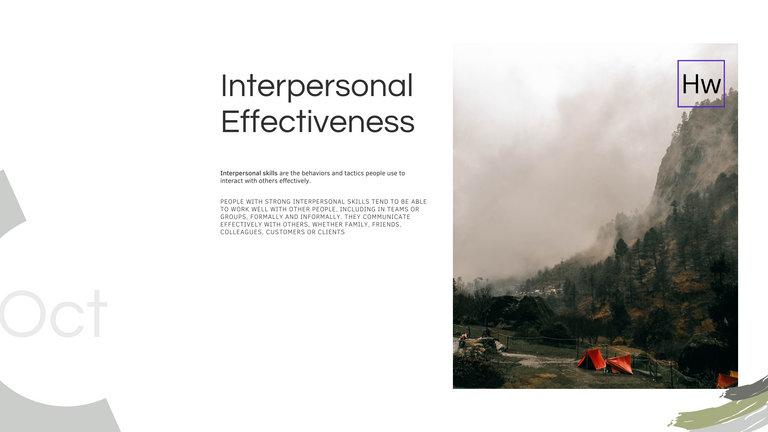Today's short talk is the three goals of human interaction
Now i'm taking this concept from Marsha Linehan who expands upon it in her dialectical behavior therapy skills workbook. She talks about how there are really only three goals that we can have when we enter into any human interaction.
Now ideally we achieve all three of these goals in the course of the interaction, however Linehan points out that sometimes that's not practically possible. Sometimes it's necessary for us to prioritize one of these goals above the other two but that we can and should do this consciously and intentionally.

So, what are these three goals? in so many words they are effectiveness, harmony, and self-respect. To elaborate how these three differ from one another.
I'm going to provide some extreme examples in which one goal is prioritized far above the other two. So, if i were to prioritize effectiveness above harmony and self-respect then i'm prioritizing getting what I want. i don't care if you don't like me , i.e i'm de-prioritizing harmony and i don't care if i have to beg or grovel to get it, i.e i'm de-prioritizing self-respect.
What is most important to me in this moment is that the thing gets done, it's not important how you think about me or how i think about myself afterwards obtaining the desired good is paramount, on the other hand if i were to prioritize harmony above effectiveness and self-respect then i'm prioritizing the continuation of the relationship above all things. No matter what happens, it's most important to me that you continue to feel positively about me when this interaction is over.
this means that i'm potentially going to go along with things that i don't think will work i.e i'm de-prioritizing effectiveness or with things that i even find distasteful or degrading i.e i'm de-prioritizing self-respect.
it's not important if i fail or how i think about myself afterwards as long as we're together i'll be all right, and finally if i were to prioritize self-respect above effectiveness and harmony then i'm prioritizing being able to live with myself when this interaction is over.

I need to stand up for myself and for what i believe to be right, this means that i'm willing to fight a losing battle, i.e i'm de-prioritizing effectiveness and that i'm willing to bear your hatred or animosity, i.e i'm de-prioritizing harmony.
The issue is bigger than me and this relationship and if necessary i'm willing to die on this hill. So, those are the three goals and my examples though somewhat extreme should have been common enough in the economy of human interactions to be recognizable to you.
Now like i said in most cases we should generally be able to get what we want and feel good about ourselves and ensure the continuation of our relationships. It's not always possible but it's generally possible.
Like most problems however issues present themselves when folks are too rigid or inflexible about implementing one strategy over another. iI's not like one of these strategies is inherently better than the others. But if all you have is say self-respect you're probably gonna be a tough person to get along with, to be honest.
If all you have is harmony then you might end up quietly resentful over all the potentially needless sacrifices you've made to make other people happy. Catch my drift, flexibility is key. Hopefully this helps
Images & Elements are free provided by Canva : Designed by Hollowins